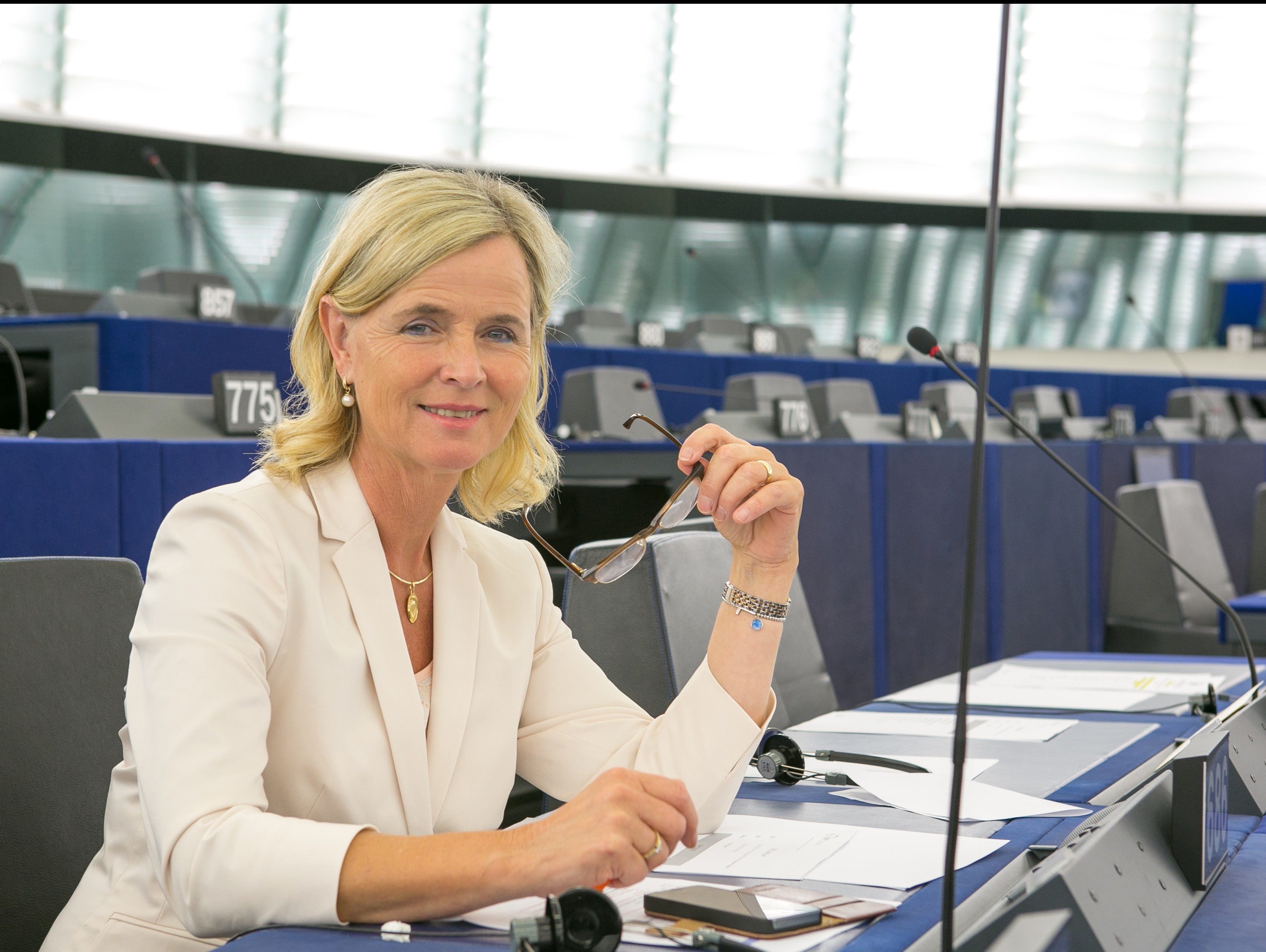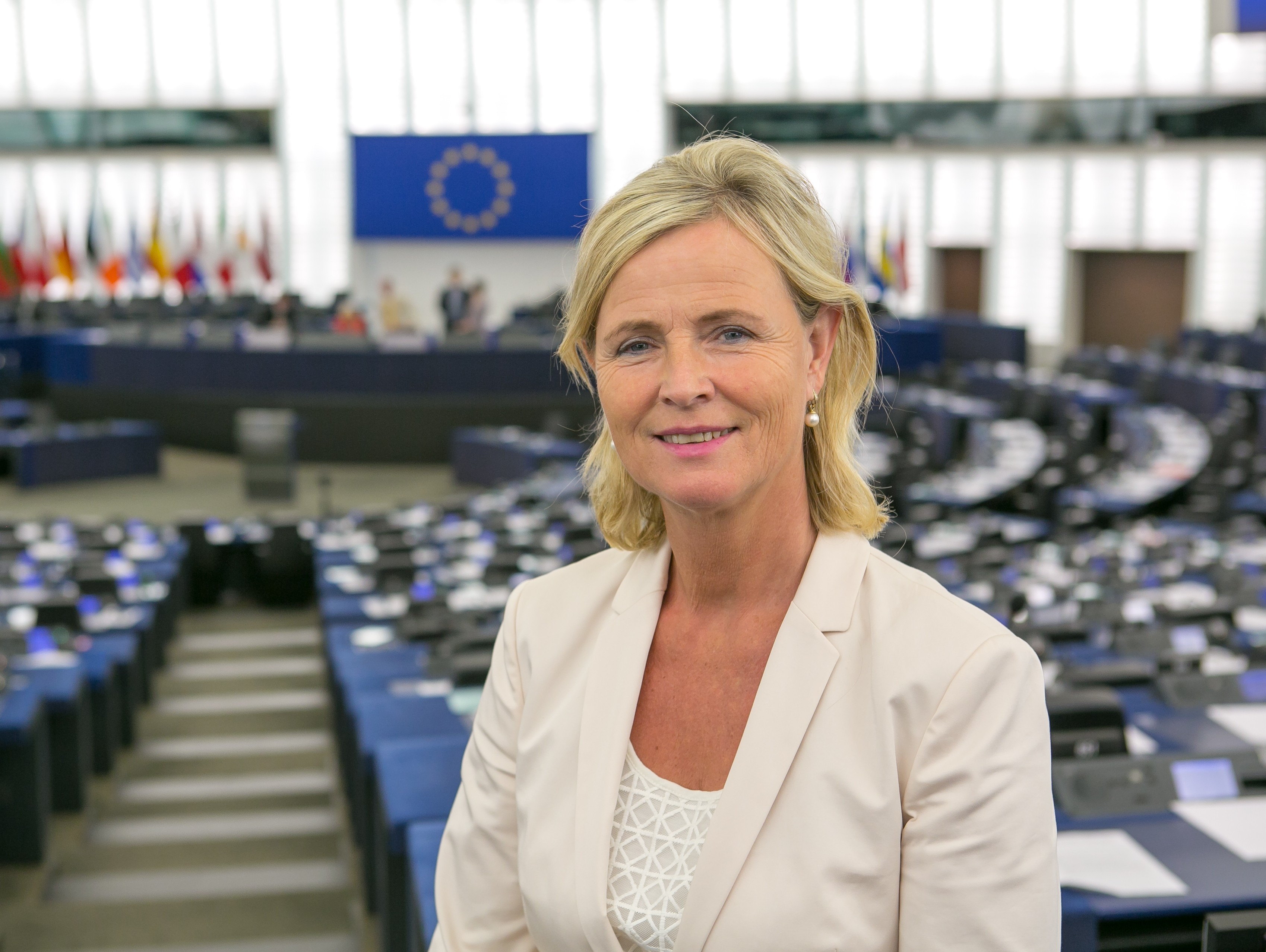
On 29 October members of the European Parliament voted to accept the Novel Foods Regulation, which will update the existing legislation dating from 1997. Member of the European Parliament (MEP) Annie Schreijer-Pierik: “I’m happy that the European Parliament has backed the legislation. This will make it easier for new foods to be approved for sale within Europe.”
‘A level playing field is crucial for Dutch companies’
The proposals include a new definition of nanotechnology and also ‘keep the door open’ to other technological advancements. EFSA will take on a more significant role, resulting in centralisation of the approval process. This means that manufacturers will no longer need to approach 28 different authorities in order to sell their new food products on the European market.
“The novel foods issue was one of the first topics I was confronted with as MEP,” says Annie Schreijer-Pierik at her office in Brussels. “There was intense debate and it was focused on nanotechnology. The European Parliament was inclined to treat hormones, cloning, GMOs and nanotechnology as one group. That really clouded the discussion. There was no nuance in the slightest. People were very negative, and that shocked me.” Annie Schreijer-Pierik comes across as being very down-to-earth. She grew up on her parents’ farm in the Dutch region of Twente, where science and level-headedness form the basis for decision-making. That does not detract from the fact that she is a woman with tremendous drive and passion for everything related to food, the countryside, entrepreneurship and agriculture.
“I saw the debates on labelling and the report on cloning become clouded in a similar way,” she continues. “People tend to forget that a lot of change takes place in nature too, it’s a natural evolution. Together with Rapporteur Nicholson, I mainly brought scientific knowledge into the discussion about novel foods; that was necessary to be able to form a well-informed opinion, and I think that we succeeded. Effective information from knowledge institutes remains in important. People need to have a topic such as nanotechnology explained to them.”
“No, it is fear that is pulling the discussion in the wrong direction. If people allow themselves to be affected by fear, they make the wrong decisions. This discussion should be based on facts, not emotion. Of course, the European People’s Party (EPP) views the developments critically but as long as nothing has been proven and the scientists’ opinions remain divided there’s no point in jumping to conclusions. Experts say that technically there is no way for nanoparticles to damage our bodies at the moment, so there’s no reason to be afraid. It’s always good to be alert but in the absence of knowledge-based information the emotional discussion takes over.”
“The most important point is that we ‘keep the door open’ to new technological advancements. These will be urgently needed if we are to be able to feed the world’s population in the long-term future. Of course it’s also very important to ensure that what we eat is entirely safe and healthy…but first there must be enough food to go round. The world’s population is growing rapidly and is forecast to reach nine billion. So in the space of less than 40 years there will be an extra two billion people who all need accommodation, work and food. How will we organise that?”
“Another equally interesting point for the food industry is the matter of how to deal with residual waste, including nanoparticles, in residual water and waste water. We recently spoke with the Commission about how to comply with the European Water Framework Directive which stipulates that the water quality in Europe must meet certain criteria from 2015 onwards. Nano has since won favour from a majority but I’m curious about the extent to which the Commission will accept it. That will also have consequences for the food industry. And at the Climate Conference in Paris it was once again demonstrated that sustainability is ‘hot’, and food manufacturing is linked to that too. Everything is connected; you can’t see one thing as being separate from the other.”
“The legislation provides the framework for food-producing companies in Europe. That’s very significant, because if this law comes into force, companies will know which rules they must comply with in the years ahead.”
‘Most importantly, we must “keep the door open” to new technological advancements’
The private sector can benefit from the common market and the rules that apply everywhere. That makes it easier to do business over the border. This is about the future of the manufacturing industry; that’s why we need to ask the political arena to be reasonable in this process. Bureaucratic obstacles, such as relating to labelling, can slow the process down. We believe that it should remain workable for companies.
The discussion points can vary tremendously from one topic to another, but they are often related to creating a level playing field for Europe, and to business opportunities versus preserving the environment.”
“The EPP strives to strike a balance between the two, because we don’t believe that they mutually exclude one another. In fact, they can help enormously. For example, in the circular economy it’s actually important that companies work to develop techniques that will enable us to produce less waste and take a more sustainable approach to our resources.”
“The Netherlands exports the most to other European countries so a level playing field is crucial for Dutch enterprises. In my experience, after a year at European level, the Netherlands is leading the way. But is the rest of Europe also following? We need to take care that Europe doesn’t suffer a setback compared with other continents. If the rules here become too strict and unworkable, we risk pricing ourselves out of the global market. Other countries outside of Europe will make use of our knowledge and surpass us, which will be bad news for our competitive position, and that will impact on our children’s jobs and futures!”
‘The legislation forms the framework for food-producing companies in Europe’
“First of all, an agreement must be reached between the Council and the Parliament. Then the Parliament will vote to accept the final version of the text as in the agreement and the legislation will then come into effect.”
“That depends on the number of products that are being developed by companies, of course, but in combination with the Juncker Plan and the circular economy the new legislation will definitely improve the development climate.”

Annie Schreijer-Pierik
Annie Schreijer-Pierik has been a member of the European Parliament since 2014 on behalf of the European People’s Party (EPP). In the European Parliament she is a member of the Committee on the Environment, Public Health and Food Safety and substitute member of the Committees on Agriculture and Rural Development and Fisheries.
She has been a politician for the Dutch CDA party for many years. Following 4 years on the municipal council in Ambt Delden and 3 years as a member of the Overijssel Provincial Council she was a member of the Netherlands Parliament (House of Representatives) for 12 years, where she spent many years as chair of the Standing Committee on Agriculture, Nature and Food Quality. Her heart lies with agriculture; she was born into a farming family and she now runs a pig farm with her husband and son in the Dutch village of Hengevelde.
Source: Europarlement